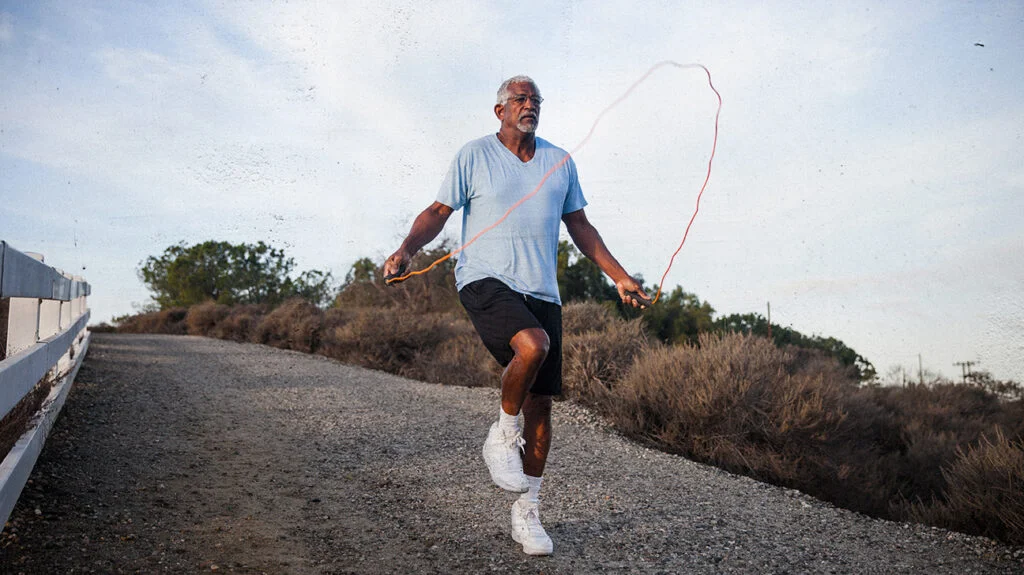Healthy aging means taking steps to care for your body and mind as you grow older. It’s about staying active, feeling good, and enjoying life at every age. Small changes in daily habits can make a big difference over time. Eating balanced meals with fruits, vegetables, and whole grains helps support your body’s needs. Staying hydrated and getting enough sleep are also key to feeling your best.
Exercise is another important part of healthy aging. Simple activities like walking, stretching, or light strength training can improve your strength, balance, and energy. Staying active not only keeps your body strong but also supports your mental health. Staying socially connected—whether through friends, family, or hobbies—can help reduce stress and improve mood.
Taking care of your health with regular check-ups is also important. Avoiding smoking, limiting alcohol, and managing stress all help protect your heart, brain, and overall well-being. Healthy aging is about making smart choices to enjoy a longer, happier life.
Understanding Healthy Aging

Healthy aging doesn’t mean you’ll never face illness or discomfort. Instead, it focuses on maintaining your overall well-being—physically, mentally, and emotionally—as you grow older. It’s natural to experience some changes with age, but the goal is to stay as active and independent as possible. Making smart lifestyle choices can help you feel better and reduce the effects of aging.
Using healthy aging tips can make a big difference in your daily life. Eating nutritious food, staying active, managing stress, and getting regular check-ups are key steps. Staying socially connected and keeping your mind engaged also supports mental health. These habits don’t prevent every illness, but they do lower the risk of serious health problems like heart disease or diabetes. By following these simple tips, you can improve your quality of life and enjoy more good days as you age.
Key Aspects of Healthy Aging:
Functional independence
Mental clarity and emotional balance
Strong social connections
Preventive healthcare
Engagement in meaningful activities
The goal is to live longer and better, with a high quality of life at every age.
Nutrition for Longevity
As we grow older, the saying “you are what you eat” becomes more meaningful. Our bodies need more care and support, and food plays a big role in that. A balanced, nutrient-rich diet helps maintain energy, supports the immune system, and keeps the body functioning well. It also helps manage weight and reduces the risk of common health problems that come with age.
One of the most important healthy aging tips is to choose foods that are rich in vitamins, minerals, and fiber. These include fruits, vegetables, whole grains, lean proteins, and healthy fats. Eating well can lower the chances of developing age-related diseases like heart disease, diabetes, and osteoporosis. Making small, consistent changes to your eating habits can lead to better health and a stronger body. It’s never too late to start eating better for a healthier and happier future.

Tips for Healthy Eating:
Focus on whole foods: One of the best healthy aging tips is to base your meals on whole foods. Choose a variety of fruits, vegetables, lean proteins, legumes, nuts, and whole grains to get the nutrients your body needs as you age.
Hydration is key: Older adults may not always feel thirsty, but staying hydrated is very important. Try to drink at least 6 to 8 glasses of water a day to support digestion, joint health, and overall energy.
Calcium and Vitamin D: These nutrients are essential for keeping your bones strong and reducing the risk of fractures. Include dairy products, leafy green vegetables, and fortified foods in your daily meals.
Limit processed foods: A helpful healthy aging tip is to cut back on processed foods that are high in salt, sugar, and unhealthy fats. Instead, choose fresh and natural options.
Smaller, more frequent meals: Eating smaller meals more often throughout the day can aid digestion and keep your energy levels steady, especially for older adults.
Omega-3 fatty acids: These healthy fats support heart and brain health. You can find them in foods like salmon, mackerel, walnuts, and flaxseed—an important addition to your healthy aging plan.
Bonus Tip: Consider seeing a registered dietitian to tailor a diet that supports your unique health needs.
Staying Physically Active
Exercise is one of the most effective healthy aging tips you can follow. It offers many benefits that help you stay strong and independent as you get older. Regular physical activity supports heart health, improves blood circulation, and keeps your muscles and bones strong. It can also help reduce the risk of chronic conditions like diabetes, high blood pressure, and osteoporosis.
In addition to physical benefits, exercise also supports mental and emotional well-being. It helps boost mood, reduce stress, and improve memory and focus. Activities like walking, stretching, or light strength training can be done daily and adjusted to your fitness level. Staying active doesn’t mean intense workouts—it simply means moving more each day. Whether it’s dancing, swimming, or gardening, staying active is one of the most important healthy aging tips to keep your body and mind in good shape.
Types of Exercises to Include:
Aerobic exercise: Walking, swimming, or cycling for cardiovascular health.
Strength training: Prevents muscle loss and supports metabolism.
Flexibility and balance: Yoga, tai chi, or simple stretching can prevent falls.
Functional exercises: Movements that mimic daily tasks (e.g., squatting, reaching) improve independence.
Recommendations:
At least 150 minutes of moderate-intensity aerobic activity per week
Muscle-strengthening activities twice a week
Balance and flexibility exercises daily or every other day
Pro Tip: Always consult a healthcare provider before starting any new fitness routine.
Mental and Emotional Well-being
Mental health is just as important as physical health, especially as we grow older. Many life changes can affect emotional well-being, such as retirement, the loss of loved ones, or changes in physical health. These events can lead to feelings of sadness, loneliness, or stress. It’s important to recognize these feelings and find ways to manage them in a healthy way.
One of the key healthy aging tips is to stay mentally and socially active. Talking to friends and family, joining clubs, or trying new hobbies can help keep your mind sharp and improve your mood. Practicing relaxation techniques like deep breathing or meditation also supports emotional balance. If you’re feeling overwhelmed, seeking help from a healthcare professional is a smart and strong step. Looking after your mental health can help you feel more positive and connected, improving your overall quality of life.
Strategies for Mental Health:
Practice mindfulness and meditation: Reduces stress and enhances emotional regulation.
Stay connected: Combat loneliness by nurturing relationships.
Set goals: Purpose drives happiness and fulfillment.
Journaling: Writing thoughts and feelings promotes self-awareness and emotional release.
Seek help when needed: Therapy or support groups can be life-changing.
Warning Signs to Watch For:
Persistent sadness or hopelessness
Loss of interest in activities
Social withdrawal
Changes in appetite or sleep
If any of these signs appear, seek professional help promptly.
Maintaining Cognitive Health
Cognitive decline is not something that happens to everyone with age. Many older adults keep their minds sharp and active well into their 80s and even beyond. While it’s normal to occasionally forget things, serious memory problems are not a guaranteed part of aging. The brain, like the body, can stay strong with the right care and attention.
One of the most valuable healthy aging tips is to keep your brain engaged through learning, problem-solving, or staying socially active. Reading, doing puzzles, playing games, or learning new skills can help support memory and focus. Staying physically active and eating well also play a role in brain health. It’s also helpful to maintain a regular sleep schedule and manage stress. With the right habits, it’s possible to keep your mind clear and focused throughout your later years.
Brain-Boosting Tips:
Lifelong learning: Take up new hobbies, read, or enroll in courses.
Brain games: Puzzles, chess, Sudoku, and memory games challenge the mind.
Stay socially active: Engaging conversations stimulate thinking.
Healthy diet: Antioxidant-rich foods like berries and leafy greens support brain function.
Quality sleep: Sleep consolidates memory and supports brain detoxification.
Social Connections and Relationships
Social interaction plays a big role in how we age. Studies show that people with strong support systems often live longer and feel happier. Being around friends, family, or community groups gives a sense of belonging and emotional support, which is important for overall health. It can help reduce feelings of loneliness, depression, and even lower stress levels.
One of the most helpful healthy aging tips is to stay socially active. This can include regular phone calls, meeting for coffee, joining clubs, or volunteering. Even simple conversations or shared activities can improve your mood and mental well-being. Staying connected keeps the mind sharp and creates a sense of purpose. Making time for social interaction is not just enjoyable—it’s an important part of a healthy lifestyle that supports both emotional and physical health as you age.

Ways to Stay Connected:
Join clubs or interest groups
Volunteer: Giving back fosters a sense of purpose.
Stay in touch with family and friends
Use technology: Learn to use video calls and social media
Adopt a pet: Companionship and responsibility wrapped in one
Preventive Healthcare and Screenings
As you grow older, regular check-ups and health screenings become more important. These visits help catch potential health issues early, often before symptoms appear. Early detection can lead to quicker treatment, fewer complications, and better outcomes. From blood pressure and cholesterol to vision and bone health, keeping up with medical appointments is a key part of staying well.
One of the most important healthy aging tips is not to skip routine screenings. Regular visits to your doctor can help manage existing conditions and prevent new ones. Screenings for cancer, diabetes, and heart problems can alert you to changes that need attention. Even if you feel fine, check-ups are a smart way to monitor your health. Taking a proactive approach with your healthcare helps you stay independent, active, and confident as you age. Prevention and early care make a big difference in long-term wellness.
Must-Have Screenings for Older Adults:
Blood pressure and cholesterol
Cancer screenings (breast, colon, prostate, etc.)
Bone density tests
Vision and hearing tests
Immunizations (flu, pneumonia, shingles, COVID-19)
Cognitive assessments
Stay up-to-date with all vaccinations and follow medical advice consistently.

Managing Chronic Conditions
Chronic diseases like diabetes, arthritis, and heart disease become more common as we age, but they don’t have to limit your quality of life. With the right care and management, these conditions can be controlled, allowing you to continue enjoying an active and fulfilling life. Regular monitoring and lifestyle changes play a significant role in managing these health concerns.
One of the most important healthy aging tips is to stay on top of your health through regular check-ups and by following your doctor’s recommendations. This may include taking prescribed medications, adjusting your diet, and staying active. Exercise, for example, can help improve flexibility, reduce inflammation, and keep your heart strong. Managing stress and getting enough sleep are also key factors in handling chronic conditions. By staying proactive, you can effectively manage these diseases and continue living your best life.
Tips for Managing Chronic Illness:
Follow treatment plans: Medications and therapies matter.
Lifestyle modifications: Diet, exercise, and stress reduction are critical.
Self-monitoring: Keep logs of blood pressure, glucose levels, etc.
Regular communication with healthcare providers: Don’t hesitate to report new symptoms.
Proactive disease management enhances quality of life and reduces hospital visits.
Sleep and Recovery
Sleep is essential for overall health, especially as we age. It supports immune function, helps keep the mind sharp, and aids in physical recovery. While sleep patterns may change with age, getting enough rest is still crucial for well-being. Quality sleep boosts energy levels, improves mood, and enhances cognitive function, making it an important part of healthy aging.
One of the most effective healthy aging tips is to prioritize good sleep. This can include creating a calming bedtime routine, maintaining a consistent sleep schedule, and making your bedroom a comfortable environment. If you have trouble sleeping, try relaxation techniques such as deep breathing or gentle stretching before bed. Adequate sleep is key to staying mentally and physically healthy, and it helps you feel your best every day. Even with changing sleep patterns, it’s important to make rest a priority as you age.
Tips for Better Sleep:
Stick to a sleep schedule
Create a calming bedtime routine
Avoid caffeine and screens before bed
Keep your bedroom dark and cool
Limit naps: Long daytime naps may interfere with nighttime sleep.
If insomnia or sleep apnea is suspected, seek a sleep specialist’s advice.
Environment and Lifestyle Adjustments
As we age, safety and accessibility become more important to help prevent falls, injuries, or limitations in daily activities. Simple changes to your living space can make a big difference in reducing risks. Removing obstacles, adding grab bars, and ensuring adequate lighting are all ways to make your home safer and more comfortable. These adjustments help you stay independent and reduce the chances of accidents.
One of the top healthy aging tips is to assess your environment regularly. Ensuring that walkways are clear, floors are non-slip, and furniture is easy to move around can prevent falls. Using mobility aids like canes or walkers can also provide extra stability. By making these small but impactful changes, you create a safer living space, which supports your overall well-being and helps you maintain your independence as you age.

Home Safety Tips:
Remove tripping hazards: Loose rugs, cords, clutter.
Install grab bars and handrails in bathrooms and stairways.
Improve lighting throughout the home.
Consider medical alert systems for emergencies.
Also, adopt smart technologies like pill dispensers, reminder apps, or even home assistants to simplify daily tasks.
Embracing a Purposeful Life
Having a sense of purpose is a powerful factor in promoting well-being as we age. People who feel useful, needed, and connected to something greater than themselves often report better health and higher levels of happiness. This sense of purpose can help reduce stress, improve mood, and even boost the immune system, leading to a longer, healthier life.
One of the best healthy aging tips is to find activities or causes that give you a sense of meaning. This could be volunteering, spending time with family, pursuing hobbies, or contributing to your community. Feeling needed and engaged helps keep the mind sharp and fosters emotional resilience. By staying connected to your passions and relationships, you’ll not only feel more fulfilled but also enjoy better health and longevity as you age.
Ways to Cultivate Purpose:
Volunteering: Offer your time and experience.
Mentoring: Share wisdom with younger generations.
Creative expression: Painting, music, writing, or crafting.
Spirituality: Many find comfort and meaning through spiritual or religious practices.
Gardening or nature walks: These offer fulfillment and relaxation.
Conclusion
Including healthy aging tips into your daily routine is one of the most powerful investments you can make in your future well-being. Aging doesn’t have to mean a decline in quality of life—it can be a time of fulfillment, purpose, and vibrant health. By focusing on balanced nutrition, regular physical activity, emotional wellness, strong social connections, and preventive healthcare, you lay the foundation for a thriving, independent life in your later years. Small, consistent lifestyle changes can yield lasting benefits, helping you stay active, mentally sharp, and emotionally resilient.

Remember, it’s never too early—or too late—to start making positive choices. Healthy aging is not about perfection; it’s about progress, awareness, and intention. Embrace these healthy aging tips today and empower yourself to live your golden years with strength, confidence, and joy. Your best years can still lie ahead.
FAQs
1. What are the best exercises for healthy aging ?
Aerobic activities like walking or swimming, strength training, balance exercises, and flexibility routines like yoga or tai chi are great for promoting overall health and preventing falls as you age.
2. How can I improve my mental health as I age ?
Practice mindfulness, stay socially connected, engage in lifelong learning, and seek support when needed. Regular exercise and a balanced diet also play a crucial role in mental well-being.
3. What should I eat for healthy aging ?
Focus on a diet rich in fruits, vegetables, whole grains, lean proteins, and healthy fats. Include plenty of calcium, vitamin D, and omega-3 fatty acids to support bone, heart, and brain health.
4. How can I prevent cognitive decline as I age ?
Engage in brain-stimulating activities, stay physically active, maintain a healthy diet, and get adequate sleep. Social interaction and lifelong learning also help keep your mind sharp.
5. How often should I see a doctor for preventive care ?
It’s essential to have regular check-ups and screenings, including blood pressure, cholesterol, cancer screenings, and vaccinations. Visit your doctor at least once a year, or more frequently based on your health status.
